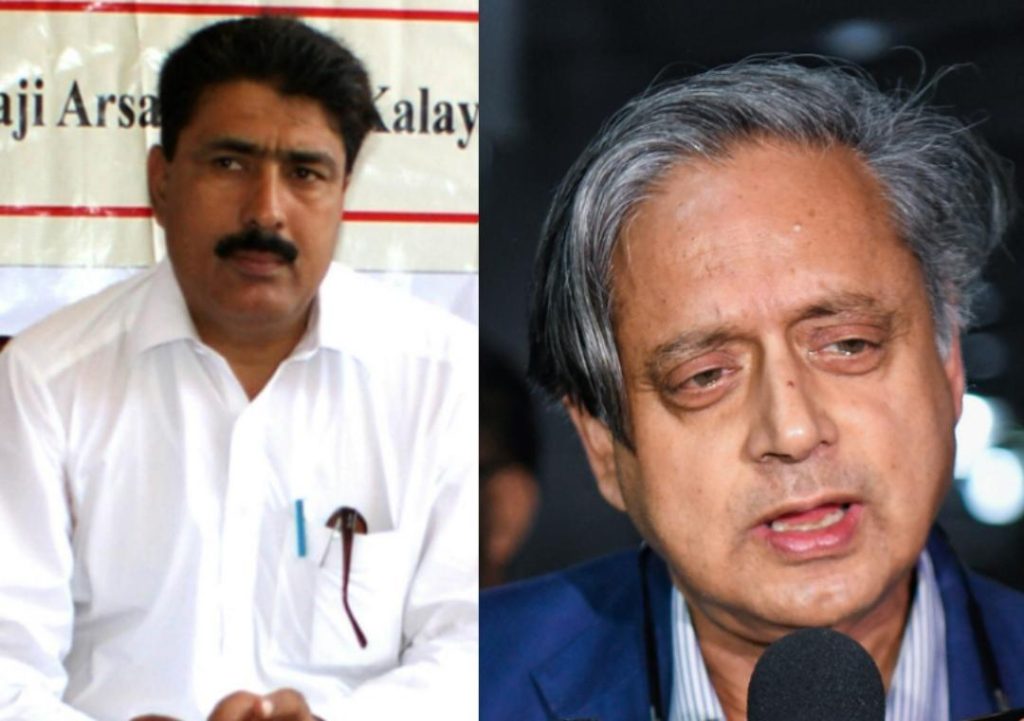
Pak punishes those who expose terrorists: Tharoor on Shakil Afridi
In a scathing rebuke, Congress leader Shashi Tharoor has slammed Pakistan’s treatment of Dr. Shakil Afridi, a Pakistani doctor who helped the US locate and eliminate Osama Bin Laden. Tharoor’s remarks came in response to a post by US Congressman Brad Sherman, who requested the Pakistani delegation to free Dr. Afridi, who is currently in jail.
Dr. Shakil Afridi was arrested in 2011 for allegedly running a fake vaccination campaign to gather intelligence on Osama Bin Laden’s hideout in Abbottabad, Pakistan. Afridi’s actions led to the successful operation that resulted in the killing of the Al-Qaeda leader in 2011.
Tharoor’s response to Sherman’s post was a stark criticism of Pakistan’s handling of Dr. Afridi’s case. “People who expose terrorists get punished in Pakistan,” Tharoor said, highlighting the stark contrast between Pakistan’s treatment of Dr. Afridi and the rewards given to those who promote terrorism in the country.
Tharoor’s assertion is backed by numerous reports and incidents of Pakistan’s selective justice system, which often prioritizes the interests of terrorists and their sympathizers over those who work against them. In Pakistan, it is not uncommon for individuals who are suspected of having ties to terrorist organizations or who have spoken out against them to be harassed, arrested, and even killed.
Tharoor’s comments also drew attention to the fact that Pakistan has a history of rewarding those who promote terrorism and extremism. Many individuals who have been involved in terrorist activities have been granted amnesty, and some have even been given government positions or have been celebrated as heroes.
This double standard is not limited to individuals; it also extends to organizations and groups that have been involved in terrorist activities. Pakistan has a long history of providing support to terrorist organizations, including the Haqqani network, which is a designated terrorist organization.
The treatment of Dr. Afridi is a stark example of Pakistan’s priorities. Despite his crucial role in helping the US eliminate Osama Bin Laden, Dr. Afridi was arrested, charged with treason, and sentenced to 33 years in prison. His sentence was widely condemned by human rights organizations and governments around the world, with many calling for his release.
Tharoor’s comments are a rare example of a prominent Indian politician speaking out against Pakistan’s human rights abuses and its support for terrorism. In recent years, there has been a growing trend of Pakistan-bashing in India, with many politicians and commentators calling for stronger action against Pakistan to curb its support for terrorism.
However, Tharoor’s remarks are significant because they highlight the need for a more nuanced approach to addressing Pakistan’s support for terrorism. Rather than simply demanding that Pakistan take action against terrorist organizations, Tharoor’s comments emphasize the need for Pakistan to hold accountable those who promote terrorism and to reward those who work against them.
Tharoor’s comments also drew attention to the need for greater international pressure on Pakistan to address its human rights abuses and its support for terrorism. The international community has long been critical of Pakistan’s human rights record, and there have been numerous calls for greater action to address the country’s support for terrorism.
In conclusion, Tharoor’s remarks on Dr. Shakil Afridi are a timely reminder of the need for Pakistan to take action against those who promote terrorism and to reward those who work against them. The treatment of Dr. Afridi is a stark example of Pakistan’s priorities, and it highlights the need for greater international pressure on the country to address its human rights abuses and its support for terrorism.






